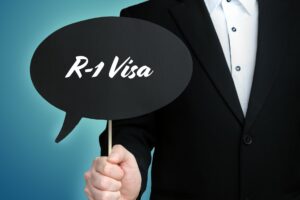The O-1 visa, nicknamed the “genius visa, ” is one of the most coveted visas, granting temporary employment to foreign professionals in the United States. Yet, many foreign nationals who may otherwise qualify for O-1 visas choose to avoid applying, simply because of the common myths circulating about this status. Some of those myths have been listed below.
The O-1 Visa Is Only for Celebrities
Many actors and performers have secured O-1 visas after attaining celebrity status in the US or internationally. This has led some foreign nationals in the arts to assume they have to reach superstar status to earn an O-1 visa. However, this is only a myth. You do not have to be a superstar to qualify for an O-1. You must only demonstrate to the USCIS that you possess extraordinary ability in your chosen art. If you can provide enough evidence to prove this, and you are prominent and well-known nationally or internationally for leading in certain productions, among other qualifications, you could meet the requirements for an O-1 visa.
The O-1 Is a Freelance Visa
While the O-1 only grants temporary status, it is not considered a freelance visa. In fact, the US does not have a dedicated visa for freelancers. Some self-employed foreign nationals may instead qualify for other types of visas, such as E-2 treaty investor and EB-5. However, to apply for an O-1 visa, you must be sponsored by a U.S. company. Even if you plan to work for multiple employers or engage in various projects, you will still need to have an agent sign as the petitioner.
O-1 Applicants Must Have Won Major Awards
This is one of the biggest misconceptions related to O-1 visas. Winning a major award, such as an Oscar, Emmy, or Tony, is an almost sure-fire way to obtain an O-1, since it will help you meet other criteria. Despite that, you do not need to win any award to meet the criteria for an O-1. In fact, some O-1 visa holders have not won any major awards in their field, but they have successfully provided strong evidence in at least three of the other categories – such as including recommendation letters from experts in the field and proof of their leadership role in major productions. So, do not count yourself out if you have not yet won a major award. You may still have a good chance of approval for an O-1.
Only Highly Experienced or Advanced Degree Holders Qualify for O-1
Some O-1 visa holders have only worked in their field for a relatively short period of time. The O-1 visa is for those who can demonstrate extraordinary ability in their field, as opposed to having years of experience or advanced degrees. While those factors may be helpful, it is only a myth that an applicant must have significant experience or an advanced degree. Those are not absolute requirements. Thousands of applicants who possess extraordinary ability in their field have been able to secure O-1 visa status with only limited experience. Being a young professional does not disqualify you or limit your chances of obtaining an O-1, if you can demonstrate your extraordinary achievement in your field.
If you believe you may qualify for an O-1 visa, but are concerned about the above common myths, or if you have questions regarding another immigration matter, contact U.S. Immigration Law Counsel for a strategy session to discuss your case.




